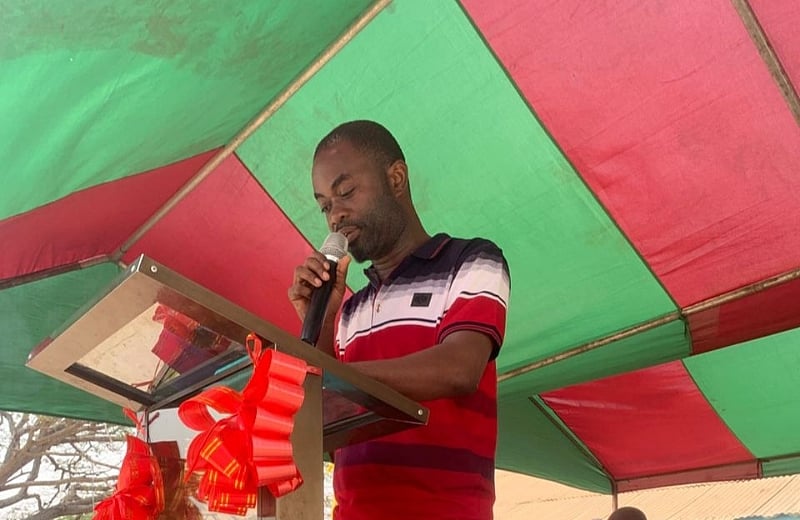Mathias Tulasi, CEO of Literacy Ambassadors Ghana, delivered a compelling address at the 2025 World Read Aloud Day celebration, held at St. Paul’s Anglican Basic School in Agbozume. His speech underscored the critical importance of reading, advocating for increased access and resources to foster a more literate Ghana. He commenced by recounting the inspiring origins of World Read Aloud Day, tracing it back to a simple yet profound wish expressed by a young student to his teacher, Pam Allyn. This anecdote highlighted the intrinsic joy and educational value inherent in the act of reading aloud, ultimately leading to the establishment of a global movement dedicated to its promotion.
Tulasi emphasized the profound impact of basic education, with reading serving as its cornerstone. He expressed gratitude for the diverse assembly of stakeholders present, recognizing their commitment to improving educational quality in Ghana. He posited that reading comprehension is paramount, and that collaborative efforts are essential to ensure every learner acquires foundational literacy and numeracy skills. Tulasi framed World Read Aloud Day as a catalyst for igniting a passion for reading and storytelling within classrooms, homes, and communities, echoing expert opinions that equate reading with the very essence of education.
He passionately urged all educators and parents to prioritize reading for meaning as a crucial factor in enhancing learning outcomes. A pivotal aspect of his address was the call for the implementation of former President John Dramani Mahama’s 24-Hour Economy Policy, proposing the Ghana Library Authority as the pilot institution. He argued that extending library hours would broaden access to resources, create additional study spaces, boost productivity, and generate employment opportunities.
Tulasi’s speech was imbued with a sense of urgency and responsibility, particularly concerning the future of Ghana’s children. He framed illiteracy as an urgent social challenge, one that demands concerted effort and sustained commitment from all stakeholders. He underscored the collective duty owed to both the current generation and posterity to build a robust basic education system that provides each learner with access to books, classrooms, and qualified teachers. This, he argued, would lay the foundation for a more literate and equitable society.
In essence, Tulasi’s appeal was for a holistic approach to literacy, encompassing not just classroom instruction, but also increased access to reading materials and supportive learning environments. His invocation of the 24-Hour Economy Policy, specifically its application to libraries, reflects a broader vision of knowledge accessibility as a driver of economic and social progress. This, coupled with his emphasis on the transformative power of reading aloud, painted a picture of a Ghana where literacy is not merely a skill, but a cherished and readily accessible resource for all.
Ultimately, Tulasi’s message resonated with the spirit of World Read Aloud Day, celebrating the power of shared stories and their potential to shape individuals and communities. His closing remarks served as a poignant reminder that the fight for literacy is ongoing, that every child unable to read represents a call to action, and that a more literate and equitable society is attainable through collective effort and a deep commitment to the transformative power of reading.














